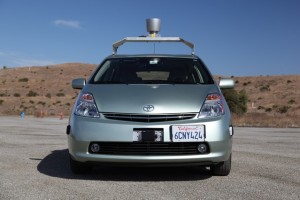 Earlier this week, we wrote about the impact that Uber could have on the future of transportation. That prompted Donald Grimes, a noted economist at the University of Michigan, to reach out to us. In this guest column, Grimes lays out the role that autonomous vehicles might play in the future of transportation.
Earlier this week, we wrote about the impact that Uber could have on the future of transportation. That prompted Donald Grimes, a noted economist at the University of Michigan, to reach out to us. In this guest column, Grimes lays out the role that autonomous vehicles might play in the future of transportation.
By Donald Grimes
What are the main problems with mass transit?
1) Cost. You have to pay the wages and benefits of the person driving the bus or the train or even the taxicab in addition to the operating and capital cost of the vehicle. When you are driving your own vehicle your labor as a driver is free.
2) Convenience. People have to get to the location to catch a bus or a train, and the mass transit will probably drop you off some distance from where you want to be.
So what is the big technology coming in motor vehicles? Driverless cars (what some call autonomous vehicles). Now, if you are using your own vehicle, who cares if the car can drive itself, other than on those long-trips when you want to take a nap.
But think about the potential for a driverless car as a mass transit vehicle. Continue reading
